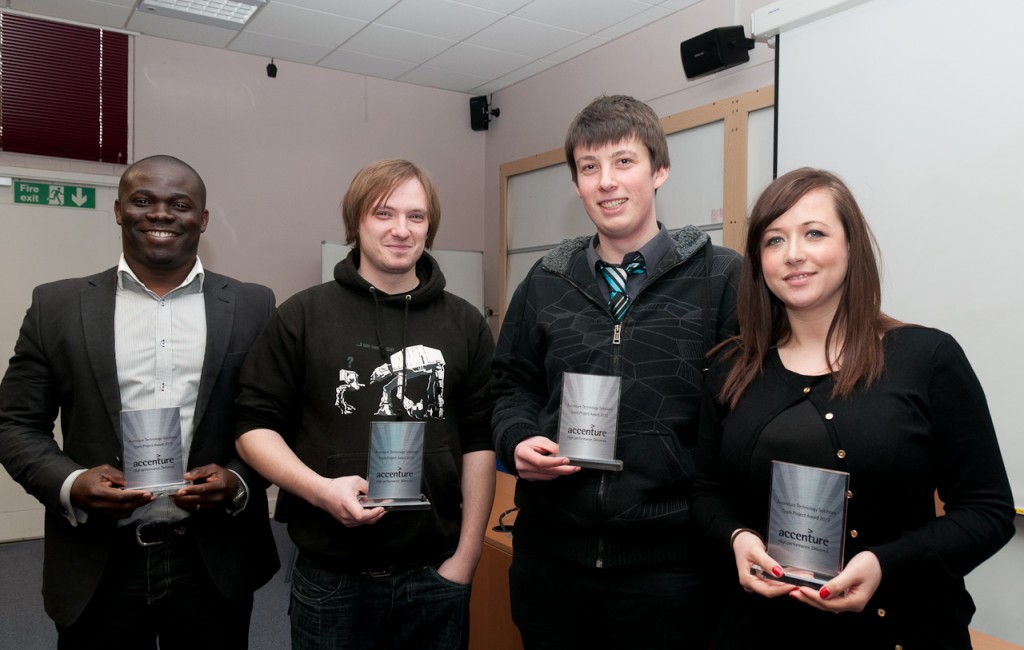Second year undergraduate students at the School of Computing have been awarded a prize for best Software Engineering project sponsored by Accenture Technology Solutions.
The students took part in a group project is based on requirements from external customers. The topic was a chronicling system for social workers, by Professor Darrel Ince of the Open University (now retired), based on his analysis of the failed Integrated Children’s System.
The three top scoring project groups gave demonstrations of the software they had developed to a jury. Professor Ince returned to Canterbury especially for what he called his ‘last academic appearance’, to be a judge. The jury was also comprised of Lisa Amis of Accenture Technology Solutions, Miguel Alcalde of Kent Enterprise, and Dr Eerke Boiten and Dr John Crawford, the module lecturing team, with an audience of fellow students and staff.
The jury decided that the winning group for 2012/2013 was Nana Adjei, Andy Forrest and Matt Weeks. They each received a plaque and a cheque.
Accenture Technology Solutions is a long term industrial contact of the School of Computing. It regularly hosts placement students from the School, and for the last few years it has sponsored the Software Engineering Practice group project, by awarding a best project prize.
The technical and professional aspects of group projects are seen as particularly important by employers, who will often discuss them during interviews. Group projects involve software systems which require a professional approach to their analysis, design and implementation.
This group project is undertaken by computing students in their second year of study as part of the Software Engineering Practice module. The module gives students an understanding of the principles and practice of the development of software systems from requirements specification and design to implementation and evolution of a system. Additional expertise includes planning, documentation, estimation, quality, cost, risk evaluation and the use of appropriate tools and techniques when working in groups. Groups consist of three to five students who work together on a single problem with the guidance of an academic staff supervisor.
The award presentation took place on 3 April 2013 at the School of Computing, University of Kent.

